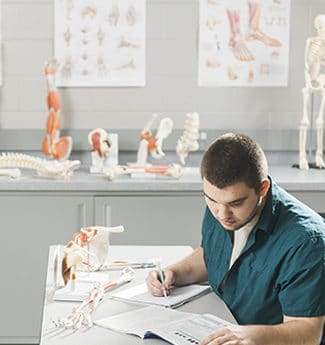This program reflects our commitment to developing students’ knowledge, skills and attitudes in five distinct yet interconnected areas.
Specialized Knowledge
- Demonstrate a sound foundational knowledge of the principles of biology and nutrition and an advanced understanding of the anatomical and physiological aspects of the human body.
- Understand the physiological basis for exercise and physical activity in application to lifelong physical fitness and the reduction of lifestyle-related diseases.
- Demonstrate an understanding of the principles of nutrition and the role of diet and exercise on body composition and weight management.
Applied Knowledge and Collaborative Learning
- Apply your knowledge base and laboratory skills to create smoothly functioning movement experiences in a range of environments.
- Collect, manage and critically analyze data relevant to the improvement of health and/or human performance.
- Foster relationships with colleagues and clinicians and community agencies to support your professional growth as well as serve as an outreach to the community.
- Successfully gain employment and/or admittance to graduate school in your chosen field of study.
- Be eligible to sit for the ACSM Certified Exercise Physiologist exam.
Intellectual Skills
Demonstrate your ability to integrate both traditional and non-traditional cognitive skills, including analytical inquiry, information literacy, quantitative fluency and communicative fluency.
Civic and Global Learning
Demonstrate intercultural competence in addressing civic, social, environmental and economic issues.
Biblical Worldview Integration
Articulate a Christ-centered worldview and its personal, professional and communal embodiment through Christian virtues.













